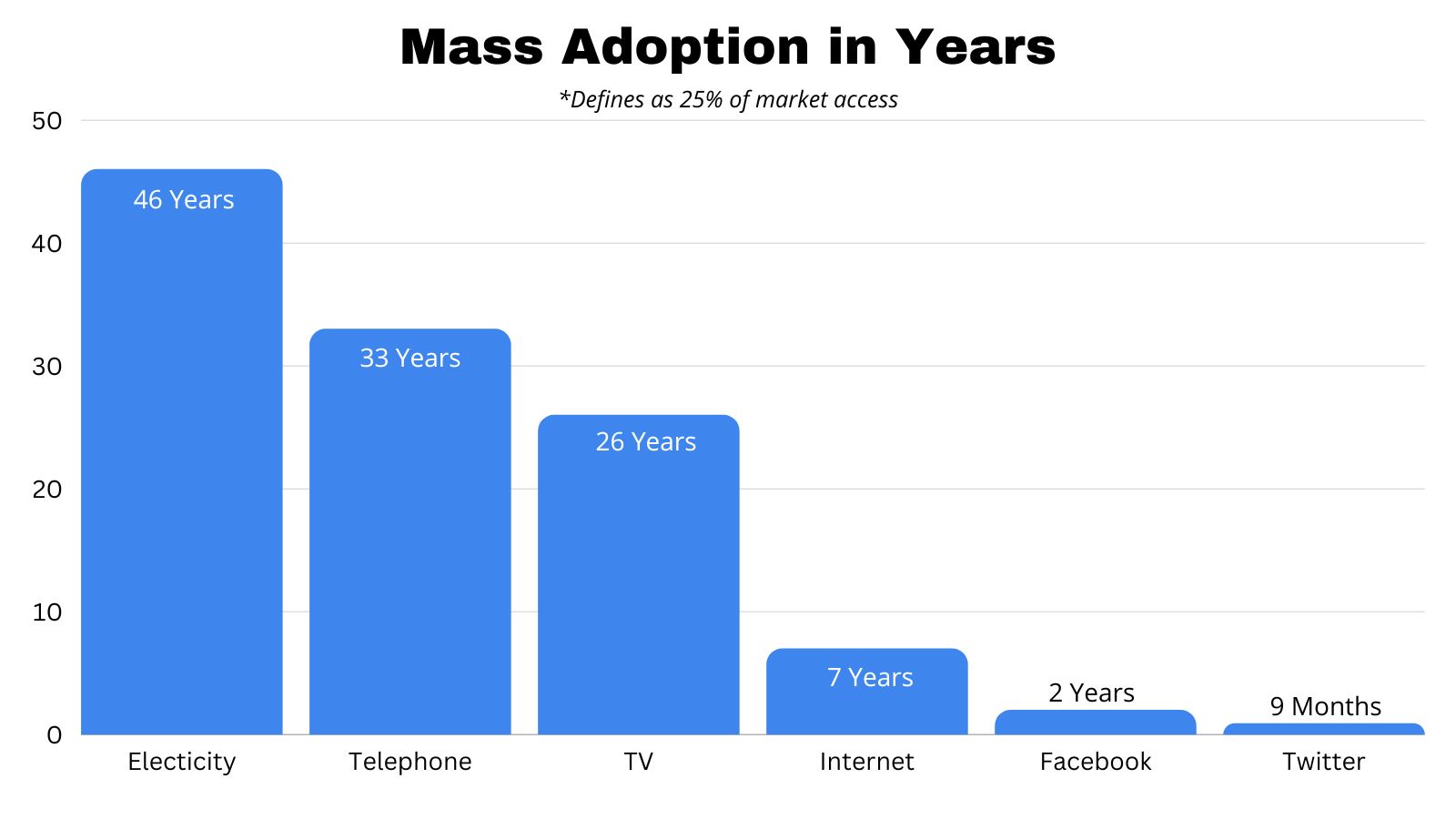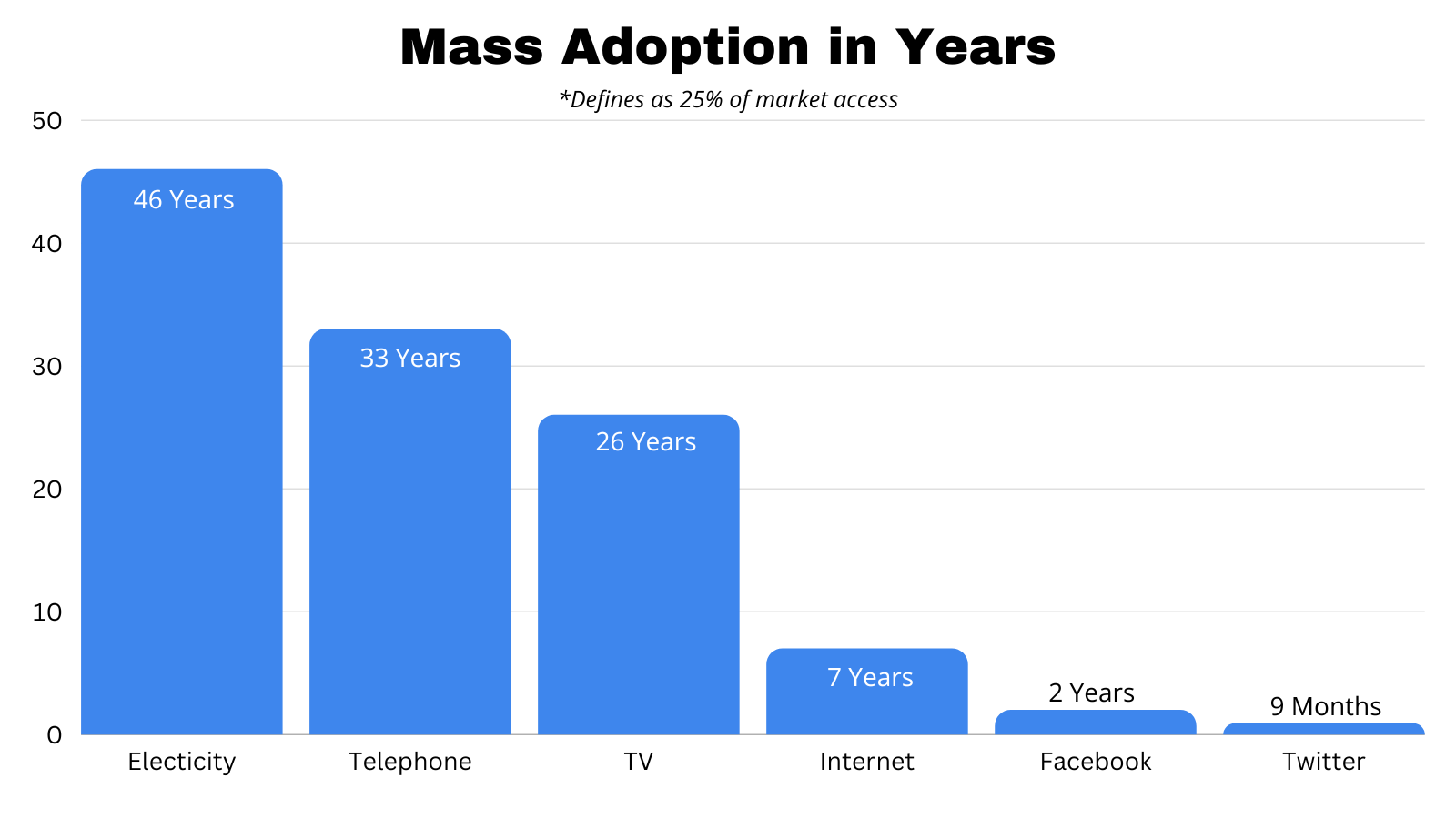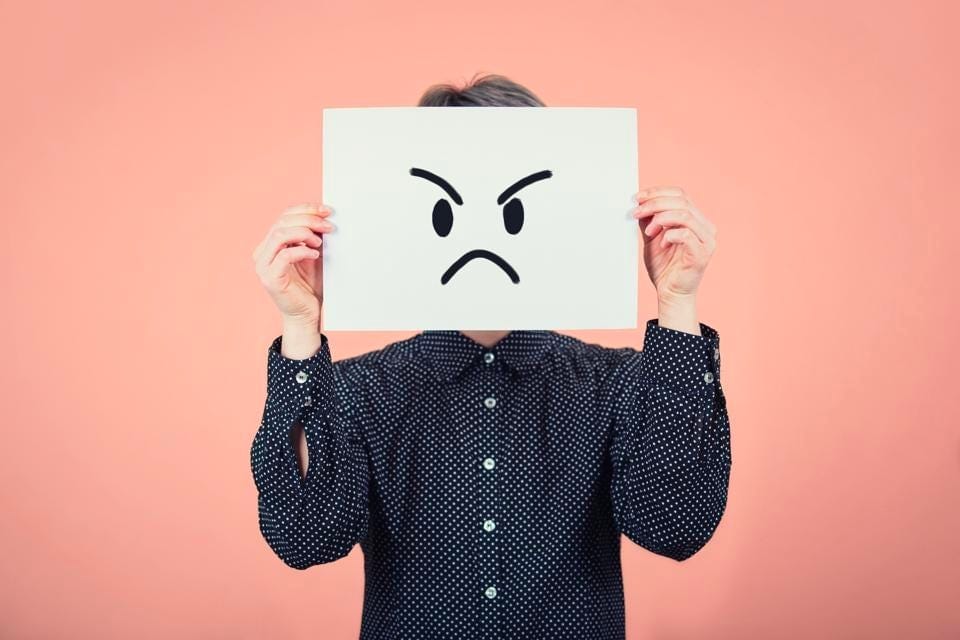
The Rapid Adoption of Social Media & It's Consequences
Part I: Social Media's Impacts on Our Emotions, Brains, & Society
🤓 Bite-Sized Knurd: The shift from social networking to social media shifted our online incentives to broadcasting content rather than deeper connections. The unprecedented rise in social media was so rapid that the consequences are not all clear.
Read on for more…
Happy New Year! I hope everyone was able to find some rest and restoration during the holidays. Whether or not your holiday was a respite or a riot, don’t forget to take it easy as we all move back into our routines.
It’s safe to say that 2022 was pretty chaotic. Whether it was the rise in “groomer” conspiracy theories against the LGBTQ2+ community, the artist formerly known as Kanye West, the very real threat of anti-democracy candidates in the Midterm elections, or Elon’s takeover of Twitter. All of these chaotic moments have a common theme, they were driven or exacerbated by social media.
Which got me thinking about how much social media dominates our society today, how we got to this place, and what implications it has for us as a society.
Social media, and the internet more generally, have radically reshaped our lives, our habits, our culture, and in some studies our actual brains. It’s embedded into our daily routines so much that we forget that social media has only been in our lives for a very short time.
Social Networking vs. Social Media
The internet is nearly 50 years old, but social media in its current form is still relatively new. That’s because what we had as social sites in the 90s and 2000s was what we would call social networking.
Ah, social networking! It sounds so innocent now. We used to hop on MySpace or Facebook and look forward to chatting with our network, mostly our existing real-life connections. It was idyllic to be able to connect with friends from other parts of the world and deepen our existing relationships.
But a shift happened around 2009 that would change the course of social networking. The increased use of smartphones and the introduction of Instagram was the point when “social software turned those connections into a latent broadcast channel,” according to Ian Bogost, American academic and video game designer.
This shift to broadcasting rather than networking caused people to share more content with a renewed lust for engagement and attention. “All at once, billions of people saw themselves as celebrities, pundits, and tastemakers.”
And this all happened over the course of a few years.
Mass Adoption of Social Media was Nearly Instantaneous
Over the course of history, we have had many life-changing technologies, but what makes social media different is the pace at which the public adopted it.

When electricity or television was invented, society had time to understand the technology and adjust to it over the course of decades before it was commonly used. These technologies certainly had radical effects on society. Television changed how people consumed news, brought a new form of entertainment, and impacted how the U.S. selected its President. John F. Kennedy’s ascent to the presidency in 1960 was driven by his comfort in crafting an image readymade for the American TV viewer.
It must have felt like a radical shift at the time. But looking back while in the age of social media, it feels quaint.
We were not prepared for the rapid shift in society, economics, governance, and personal habits that came with social media. Since 2009, social media has brought cascading consequences to every aspect of our lives.
Consequences of Rapid Adoption
The ripple effects are hard to identify, but the largest shift is in our own personal habits caused by changing incentives of social media companies.
The goal of most companies under capitalism is profit at all costs. By shifting to a broadcast model, social media companies can use their users to develop content for them and then use that content to keep their users on their site. It’s a loop that allows companies to make lots of money with minimal effort to innovate.
It’s a perfect profit model for them. Keep their users from thinking they are the customer, not the actual product.
In fact, the real customer of social media is advertisers. The more people you can keep on your social media platform for longer, the more opportunities to sell advertising.
By using algorithms and manipulating human behavior to always strive for more engagement, social media companies are causing us to change our incentives in an unhealthy way. The widely used phrase in marketing circles, “content is king” has been embedded deep into our psyches. Companies, politicians, influencers, and regular people all buy into the need to create more content to be noticed.
We’re only just beginning to understand the impacts that social media has on us, but it’s clear that such a rapid change in human behavior is not great for society.
In this month’s series on social media, we’ll touch on how social media is influencing minds and behaviors, what implications social media has for us as a society, and what alternatives are available that better meet human behavior. See you next Thursday for more!
The Good Knurd 🤓
How have you noticed your social media habits change over time (particularly in the last 2 years of the pandemic)? Where do you feel like social media is beneficial for you vs. harmful?
Next Up:

the roots of change media Newsletter
Join the newsletter to receive the latest updates in your inbox.




